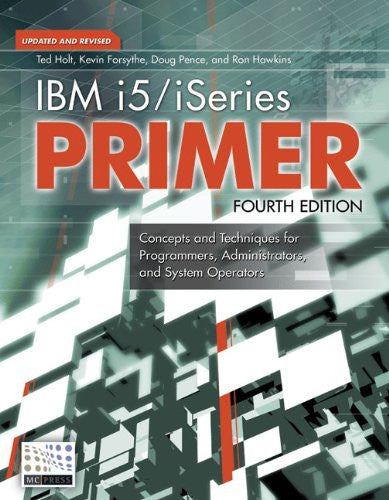The most disappointing project I was ever involved with was with some folks at a local small business who were keeping books by hand and wanted to computerize their accounting process. The only package that was designed for their type of business, a UNIX “solution,” was priced at far more than the business could afford. The hardware was expensive. The software license was expensive. Maintenance on the two was even more expensive.
So they bought a PC, licensed Peachtree Accounting for Windows, and called me for training. It only took us a few days and several conversations with Peachtree support to determine that Peachtree could not run their business. Peachtree support agreed with us that certain enhancements would be useful but could not promise that those enhancements would ever be implemented. To my knowledge, that business is still keeping books manually.
This, then, is the small business dilemma. Many small businesses cannot find suitable canned software, yet they can’t afford to pay someone to write what they need. What are small businesses to do?
Perhaps what they need are free applications.
Free <> No Cost
Free software is not a new idea. It has been around for a good 20 years or so. Nowadays it’s known as “open source,” because the source code is distributed. The Open Source Initiative (OSI) Web site, www.opensource.org, has a lot of information about the open source movement, but the concept can be summed up in a few statements:
• Programmers work voluntarily together on a project to create software.
• Nobody can restrict anybody else from distributing the software.
• Source code must be freely available to anybody who wants it.
• Nobody can stop anybody else from modifying the source code.
Programmers all over the planet live out this philosophy, yet this philosophy strikes some AS/400 programmers as being odd. After all, I (and in all probability, you) don’t write programs for free. So why would all of these people labor, expecting nothing in return?
The answer is that these programmers are expecting something in return. Some derive enjoyment from the process of cooperating with others to accomplish something. For some people, the reward is that they acquire and begin to use a functional piece of software they could not have written alone. Still others take the code that they helped to build and create commercial products with it.
But free source code is really not new to the AS/400 world. Midrange Computing has been publishing source code since it was born as Data Network. Our source code is available for download from www.midrangecomputing.com/mc/. Three other Web sites from which you can get free AS/400 source code are www.netshare400.com, www.springfieldtn.net/users/leslier/, and www.java400.net/. The last two even use the term “open source.”
Free <> Worthless
Open source advocates are proud of their successes, and rightly so. The most notable open source success story is that of Linux. It’s impossible to know how many machines are running Linux now, but the number does seem to be growing. According to some sources, Apache, an open source Web server, is now the Web server of more than half the sites on the Internet. Other open source projects are very successful as well. BIND is the domain name server for the entire Internet. Perl is the programming language behind much of the dynamic content on the Web. For more information, see the OSI Web site.
It appears that big business is taking notice. At PartnerWorld this past January, IBM declared that Linux will be running on all of its server platforms by the end of 2000. It didn’t exclude the AS/400. Other large software and hardware vendors already support or have announced support for Linux. IBM chose to bundle Apache with WebSphere. Speaking of IBM, have you visited their open source site at www.alphaworks.ibm.com/ yet?
One reason, then, to believe that open source may solve the problems of small businesses is the success of open source projects to date. Another reason is the success of many consultants in marketing their own packages. Some start with a package given to them, perhaps by a former employer, while some develop a package from scratch. They license their software to small businesses for little or nothing, making their money by installing the software, customizing it as necessary, training users, and providing ongoing support. A group of consultants who pooled their resources could develop a package in less time than any of them could do by working individually. On top of that, the package, being open source and reviewed by a wide group of people, would be more robust.
Free = No Limits
Whether the open source movement will bring relief to small businesses, or even large businesses, remains to be seen. The possibility is strong, due to the increasing business interest in Linux. The OSI Web site claims that Linux, which has so far been strong in scientific computing, is moving into the commercial world.
I don’t doubt that some will scoff at the idea of open source business applications, just as some scoff at Linux. But I anticipate that others will see an opportunity, and small businesses may finally get the software they need.

















 Business users want new applications now. Market and regulatory pressures require faster application updates and delivery into production. Your IBM i developers may be approaching retirement, and you see no sure way to fill their positions with experienced developers. In addition, you may be caught between maintaining your existing applications and the uncertainty of moving to something new.
Business users want new applications now. Market and regulatory pressures require faster application updates and delivery into production. Your IBM i developers may be approaching retirement, and you see no sure way to fill their positions with experienced developers. In addition, you may be caught between maintaining your existing applications and the uncertainty of moving to something new. IT managers hoping to find new IBM i talent are discovering that the pool of experienced RPG programmers and operators or administrators with intimate knowledge of the operating system and the applications that run on it is small. This begs the question: How will you manage the platform that supports such a big part of your business? This guide offers strategies and software suggestions to help you plan IT staffing and resources and smooth the transition after your AS/400 talent retires. Read on to learn:
IT managers hoping to find new IBM i talent are discovering that the pool of experienced RPG programmers and operators or administrators with intimate knowledge of the operating system and the applications that run on it is small. This begs the question: How will you manage the platform that supports such a big part of your business? This guide offers strategies and software suggestions to help you plan IT staffing and resources and smooth the transition after your AS/400 talent retires. Read on to learn:
LATEST COMMENTS
MC Press Online